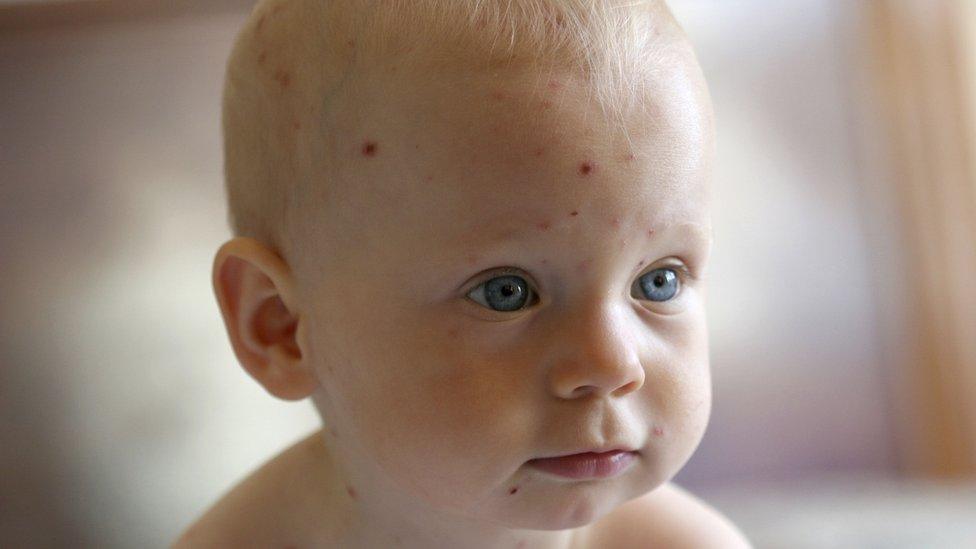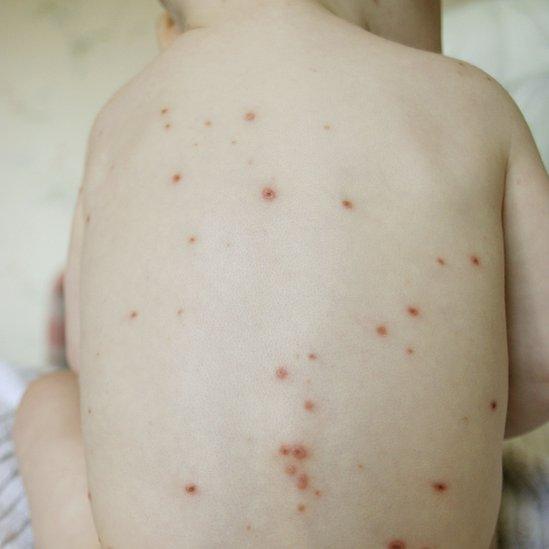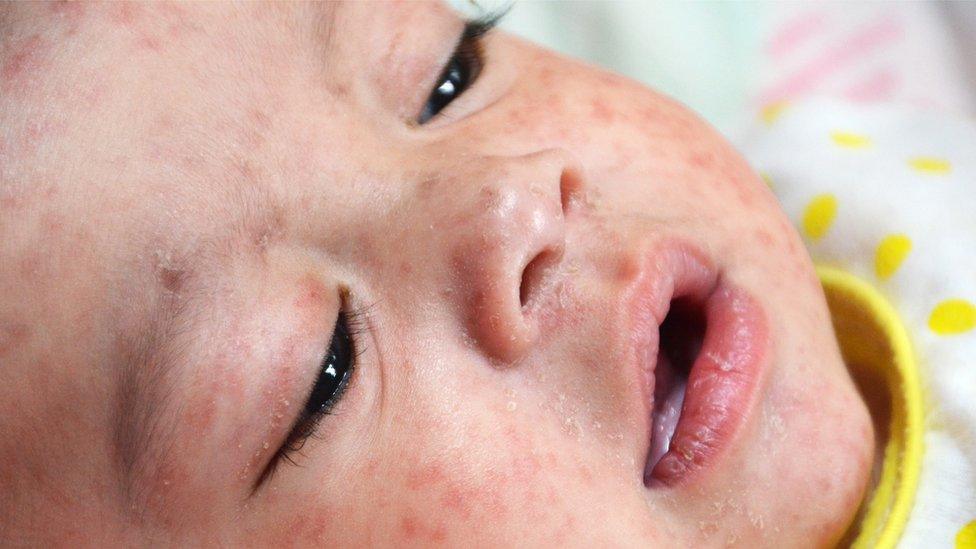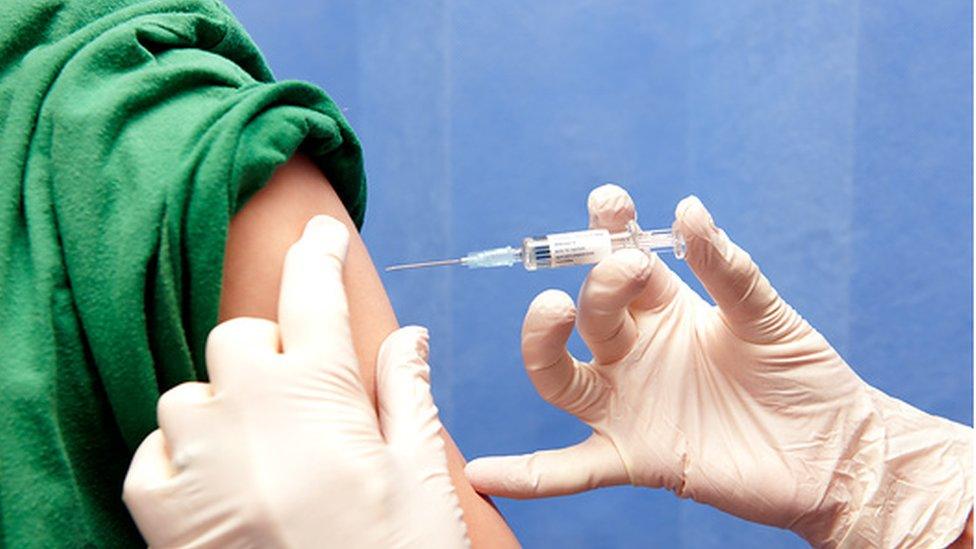Anti-vaccine community behind North Carolina chickenpox outbreak
- Published

The chickenpox vaccine has seen thousands of US children avoid going to hospital in the last decade
A North Carolina school with a large anti-vaccine community is at the heart of the state's largest chickenpox outbreak in decades, officials say.
On Friday 36 students at Asheville Waldorf School were diagnosed with the disease, the Asheville Citizen-Times newspaper reported.
The school has one of the state's highest rates of religious exemption, allowing students to skip vaccination.
US health officials say vaccinating is far safer than getting chickenpox.
"This is the biggest chickenpox outbreak state health officials are aware of since the vaccine became available," a North Carolina Department of Health spokesman told the BBC in an emailed statement.
Out of the Waldorf School's 152 students, 110 have not received the vaccine for the varicella virus, known to most as chickenpox, the Citizen-Times found, external.
And 67.9% of the school's kindergarten students had religious immunisation exemptions on file in the 2017-2018 school year, according to state data, external.
The primary school is fully co-operating with local health officials and is compliant with all North Carolina laws, a spokesperson for the school told the BBC.
"We find that our parents are highly motivated to choose exactly what they want for their children. We, as a school, do not discriminate based on a child's medical history or medical condition."
Buncombe County, home to the city of Asheville, with a population of over 250,000, has the highest rate of religious-based immunisation exemptions in the state.
Local health officials are closely monitoring the situation, according to the county's health department.
"We want to be clear: vaccination is the best protection from chickenpox," County Medical Director Dr Jennifer Mullendore said in a statement, external.
"When we see high numbers of unimmunised children and adults, we know that an illness like chickenpox can spread easily throughout the community- into our playgrounds, grocery stores, and sports teams."
North Carolina law requires certain immunisations, including chickenpox, measles and mumps for kindergarteners, but the state allows for medical and religious exemptions, external.
Most religions do not prohibit vaccination, but in recent years, some US parents have become fearful of adverse reactions to vaccines.
While some bad reactions, like allergies, to vaccines are possible, the medical community has debunked the vast majority of these fears, and groups including the World Health Organization and the American Academy of Pediatrics encourage vaccination.

While most chickenpox cases are mild, some can result in serious complications and even death
How serious is chickenpox?
Chickenpox, external is a viral infection that causes a blister-like rash, itching, and fever. In serious cases, it can lead to complications like inflammation of the brain, pneumonia and death.
The virus spreads through contact or coughing and sneezing, though it is not as contagious as measles, which can be spread without any contact.
The Centers for Disease Control (CDC) recommends vaccinating children between one and 12 years of age. Though serious cases are uncommon, the CDC says chickenpox spreads easily and can be deadly.
The chickenpox vaccine was licensed in the US in 1995. According to the CDC, the vaccine has prevented 3.5 million cases of varicella, 9,000 hospitalisations and 100 deaths annually in the US.
And though some individuals may still get chickenpox with the vaccine, it is very effective at preventing severe or life-threatening cases.
Vaccinating also helps protect susceptible individuals who are unable to get the vaccine, external, like pregnant women, infants younger than one-year-old and cancer patients.
In the UK, the chickenpox vaccine is listed as an optional, external childhood vaccine.
- Published22 January 2015

- Published24 August 2018

- Published1 November 2018
